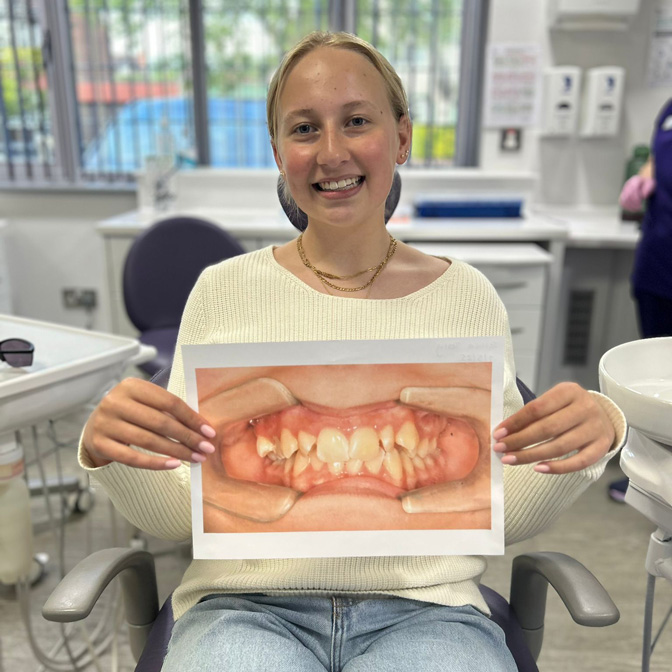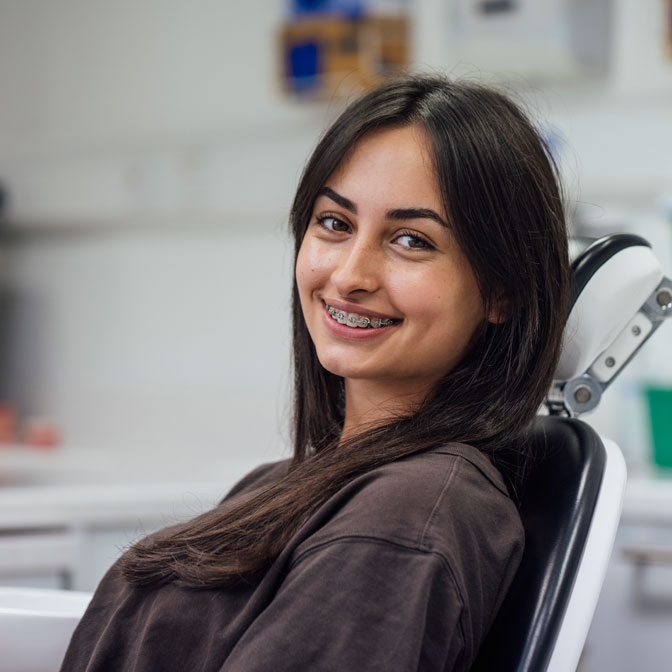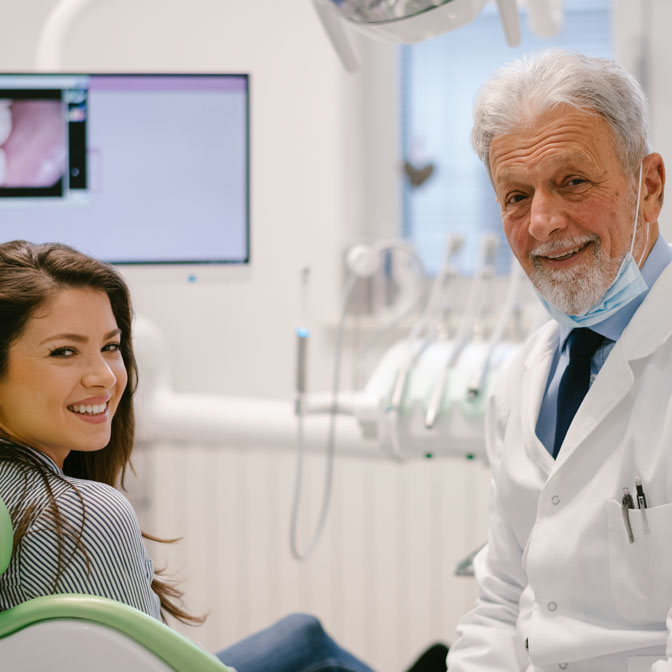Orthodontists vs dentists
Orthodontists and dentists both play vital roles in maintaining the health of your smile, but their roles are quite different! Let’s explore the key differences between these two important dental professions to help you better understand the experts at our practice.

Orthodontist vs Dentist
| Orthodontist | Dentist | |
|---|---|---|
| Doctor of Dental Surgery (5 years) | ||
| Minimum of 3 years post-graduate training and exams | ||
| Master of Orthodontics (MOrth)(3 years) | ||
| Member of professional orthodontic bodies, eg. British Orthodontic Society |
| Orthodontist | Dentist | |
|---|---|---|
| General 6-month check up | ||
| Fillings & extractions | ||
| Cleaning & polishing | ||
| Advises on overall oral health of teeth and gums | ||
| Fitting of orthodontic appliances, such as braces & Invisalign aligners | Some general dentists may fit braces and Invisalign but they are not specialists in orthodontics. |
| Orthodontist | Dentist | |
|---|---|---|
| Is specifically trained to in the movement of teeth and bite issues | ||
| Recommends and treats patients after assessing overall facial profile | ||
| Uses the latest in orthodontic technology for the benefit of patients | ||
| Attends regular training on developments in the orthodontic industry | ||
| Is a member of The Invisible Orthodontist (TIO) Network | Not all orthodontists are members of TIO but those that are demonstrate further commitment to promoting invisible orthodontic treatment. |
What is the difference between orthodontists and dentists?
Every Specialist Orthodontist begins their career as a general dentist, which means they have the same expertise in keeping your teeth clean and healthy as your regular dentist! So, what sets them apart?
A Specialist Orthodontist has completed at least three more years of specialized training to master the art of aligning your teeth and jaws. Only a Specialist Orthodontist is qualified to design a personalised orthodontic treatment plan specifically tailored to your needs.

The road to becoming a Specialist Orthodontist
To become a Specialist Orthodontist, the journey begins with earning a degree in dentistry. This is followed by at least two years of vocational training and obtaining a higher dental qualification.
To achieve specialist status, an additional three years of study and supervised clinical work in a university hospital are required. Once completed, you can apply to be listed on the General Dental Council’s specialist register. Only then can you be officially recognised as a Specialist!
Without undergoing this extensive training, a dentist cannot truly ‘specialise’ in orthodontics; they can only have a ‘special interest’ in the field.

Why choose a specialist for your orthodontic treatment?
Many dental clinics offer braces or ‘fast orthodontic treatments,’ but these one-size-fits-all options aren't tailored to your specific smile needs. More often than not, they can do more harm than good, sometimes requiring a visit to an orthodontist for corrections later on.
To safeguard your health (and your budget), it’s always better to consult a specialist from the start. A Specialist Orthodontist has the expertise to safely and effectively enhance your smile.

See what our specialists can do for your smile
Book a free consultation to meet with your Specialist Orthodontist today.
BOOK A free CONSULTATION










